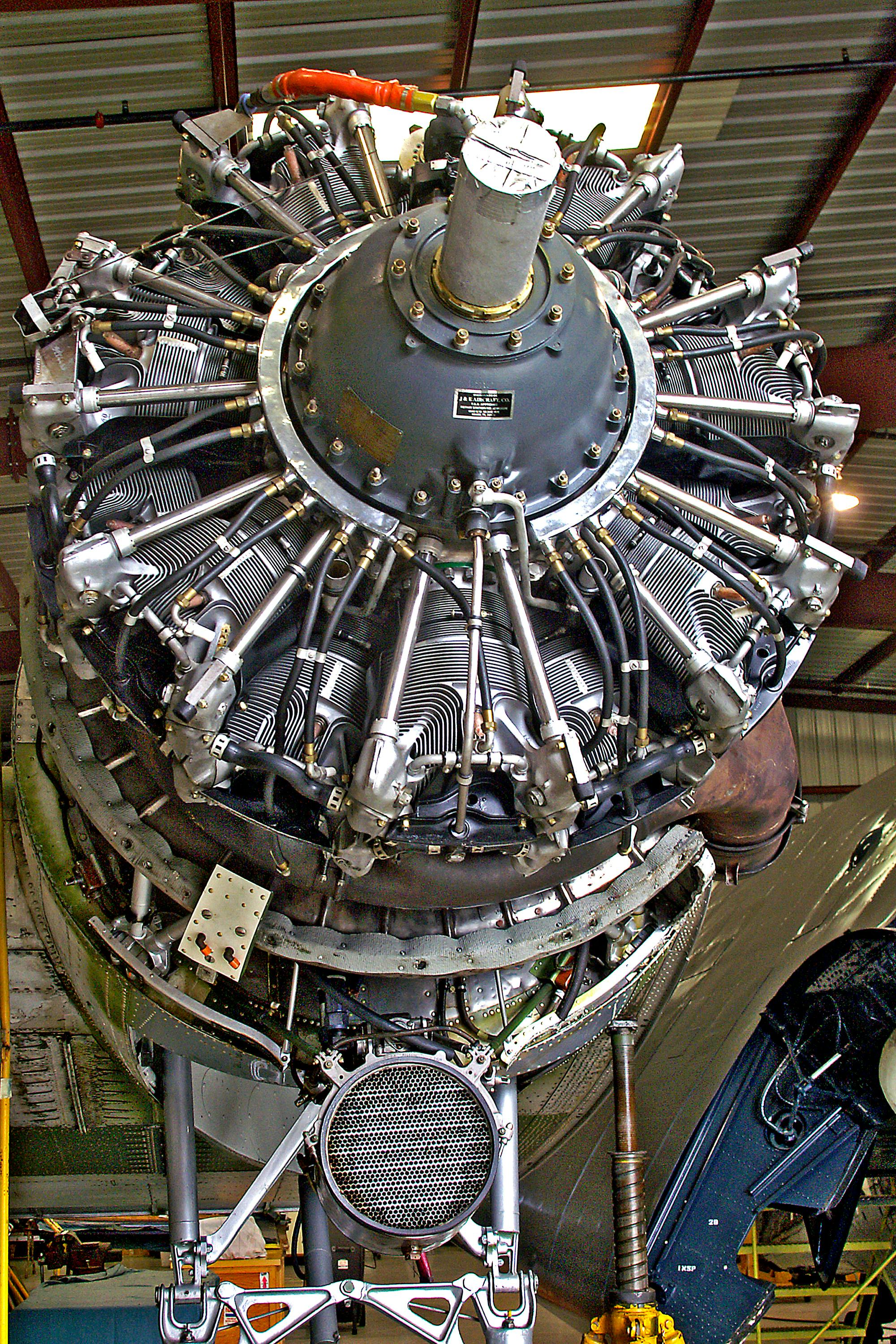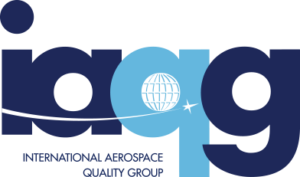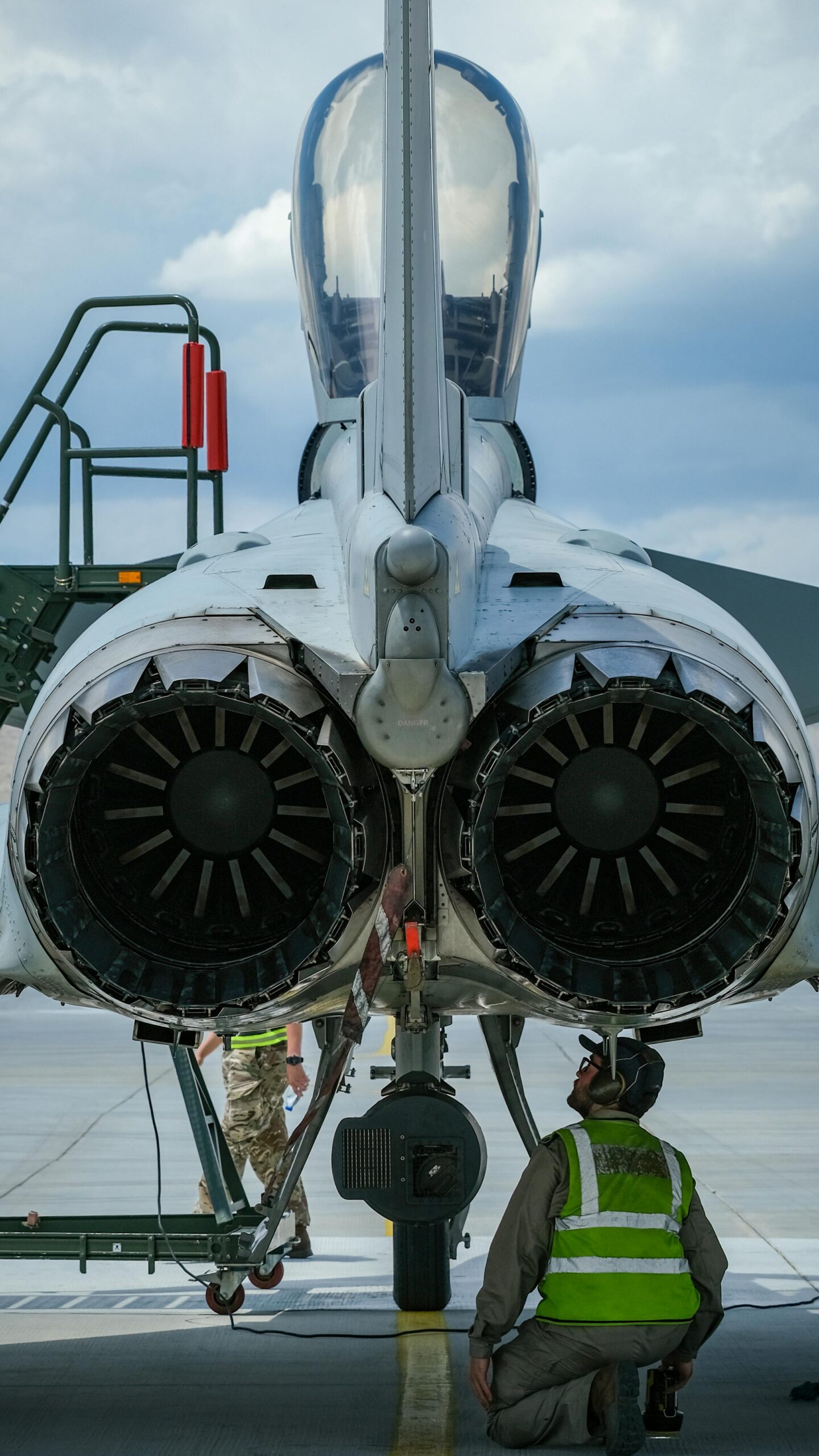

AS9110 is a standard that defines the quality system requirements for organizations whose primary business is in the aircraft industry at all levels of the maintenance, repair & overhaul (MRO) process. It is focused on the control of repair schemes and maintenance plans, configuration management, and the skills and qualifications necessary to perform MRO tasks within the aerospace community.
Based on ISO 9001 but with nearly 100 additional requirements specific to the aerospace MRO industry, AS9110 provides suppliers with a comprehensive quality system focused on areas directly impacting product safety and reliability.
Audience: |
Beginner to Advanced |
 |
|
Schedule: |
Days 1-4: 7:30 AM – 6:30 PM MSTDay 5: 7:30 AM – 11:00 AM MST |
||
| This course is certified by Probitas Authentication. Successful completion of this course satisfies the AS9110 Lead Auditor training requirement for Aerospace Auditor authentication.
Even though AS9110 is used as the model for teaching systems and audit, this course enables students to develop and apply auditing skills using any applicable management system standard. In addition to this course, aerospace auditors must also complete the IAQG sanctioned Aerospace Auditor Transition Training course to fulfill the training requirements for aerospace auditor authentication and recognition in OASIS. |
|||
OverviewOrganizations in the aerospace maintenance, repair, and overhaul (MRO) industry face unique quality requirements, and effective auditing is essential for maintaining compliance, managing risk, and ensuring safety. AS9110 builds on ISO 9001 by adding MRO-specific requirements that must be clearly understood and properly assessed during audits. This interactive, live-online AS9110 Lead Auditor Training equips you with the knowledge and practical skills to conduct, manage, and lead audits to both AS9110C and ISO 9001:2015 standards. Certified by Probitas, this course fulfills the formal training requirement for AS9110 Lead Auditors. Led by experienced instructors, you will explore every phase of the audit process, including:
This course emphasizes hands-on learning through interactive activities, group discussions, case studies, real-world scenarios, and role-playing exercises. Whether you are auditing internal processes, suppliers, or regulatory compliance, you will gain the confidence, knowledge, and tools needed to perform high-quality audits in MRO and aerospace service environments. You will also leave with a practical, structured, and repeatable approach to auditing that supports long-term success. |
Pre-RequisitesStudents will need to complete assignments before the start of class, including reading the standard. This AS9110 Lead Auditor training course is beneficial for both quality novices and lifetime professionals. Our goal is to meet everyone at their current level of competence and improve it. All students are required to bring their own copy of the AS9110 RevC standard. This will not be provided by Axeon, but most students will be able to obtain a copy from their company. |
 |
Who Should Attend
|
| AS9100 Rev D Lead Auditor Training | AATT AS9100 IAQG Sanctioned Aerospace Auditor Transition Training | AS9102 First Article Inspection Training | AS9145 APQP & PPAP Training |
Audience: |
Beginner to Advanced |
 |
|
Schedule: |
7:30 AM – 6:30 PM MST |
||
| Axeon Inc. is certified by Probitas Authentication and is an IAQG recognized Training Provider for the AS9110 Lead Auditor Training Class. This AS9110 Internal Auditor Class is certified by Axeon, Inc. | |||
OverviewOrganizations in the aerospace maintenance, repair, and overhaul (MRO) industry operate in an environment where safety, airworthiness, and regulatory compliance are non-negotiable. Internal audits are not just a requirement, they are a critical tool for managing risk, preventing escapes, and strengthening operational control. AS9110 builds on ISO 9001 by adding MRO-specific requirements that must be clearly understood, correctly interpreted, and effectively audited to ensure your Quality Management System truly supports safe and reliable operations. This interactive, live-online AS9110 Internal Auditor Training is designed to prepare you to confidently conduct internal audits to AS9110:2016 Rev C. Delivered by an IAQG-recognized training provider through Probitas Authentication, this course focuses on building real-world auditing competence, not just theoretical knowledge. Led by experienced aerospace auditors, this practical 3-day course walks you through every phase of the internal audit process, including:
Unlike academic programs that emphasize abstract quality theory, this course is hands-on and application-driven. Through case studies, group discussions, real-world scenarios, quizzes, and role-playing exercises, you will actively practice the skills needed to perform effective internal audits in MRO and aerospace service environments. By the end of the course, you will be prepared to conduct a structured, thorough, and value-added internal audit that not only verifies compliance, but drives meaningful improvement within your Quality Management System. |
Pre-RequisitesStudents will need to complete assignments before the start of class, including reading the standard. This AS9110 Internal Auditor training course is beneficial for both quality novices and lifetime professionals. Our goal is to meet everyone at their current level of competence and improve it. All students are required to bring their own copy of the AS9110 RevC standard. This will not be provided by Axeon, but most students will be able to obtain a copy from their company. |
 |
Who Should Attend
|
| AS9110 Lead Auditor Training | AS9100 Rev D Lead Auditor Training | AATT AS9100 IAQG Sanctioned Aerospace Auditor Transition Training | AS9145 APQP & PPAP Training |
Audience: |
Beginner to Advanced |
 |
|
Schedule: |
Days 1-4: 7:30 AM – 6:30 PM Local TimeDay 5: 7:30 AM – 11:00 AM Local Time |
||
| This course is certified by Probitas Authentication. Successful completion of this course satisfies the AS9110 Lead Auditor training requirement for Aerospace Auditor authentication.
Even though AS9110 is used as the model for teaching systems and audit, this course enables students to develop and apply auditing skills using any applicable management system standard. In addition to this course, aerospace auditors must also complete the IAQG sanctioned Aerospace Auditor Transition Training course to fulfill the training requirements for aerospace auditor authentication and recognition in OASIS. |
|||
OverviewIn the aerospace maintenance, repair, and overhaul (MRO) industry, compliance with AS9110C and ISO 9001:2015 is critical to ensuring quality, safety, and customer satisfaction. Auditors must be well-prepared to assess both general and MRO-specific requirements with precision and confidence. This in-person AS9110C Lead Auditor Training delivers a rich, immersive learning experience that goes beyond the screen. Certified by Probitas, this five-day course fulfills the formal training requirement for AS9110 Lead Auditors and equips you with the practical skills needed to conduct, manage, and lead internal, supplier, and regulatory audits. Held in a traditional classroom setting, this training allows for deeper engagement, real-time feedback, and dynamic peer interaction. You’ll benefit from direct access to instructors, group exercises, and collaborative discussions that mirror the challenges auditors face in the field. In this class, you will explore every phase of the audit process, including:
This course is highly interactive, using case studies, role-playing scenarios, and real-time coaching to build your competence and confidence. The in-person format enhances retention, fosters professional connections, and provides a hands-on environment ideal for building strong audit leadership skills. Whether you are advancing your career or supporting your organization’s certification goals, this training offers the structure, support, and in-depth instruction you need to succeed. |
Pre-RequisitesStudents will need to complete assignments before the start of class, including reading the standard. This AS9110C Lead Auditor training course is beneficial for both quality novices and lifetime professionals. Our goal is to meet everyone at their current level of competence and improve it. All students are required to bring their own copy of the AS9110C standard. This will not be provided by Axeon, but most students will be able to obtain a copy from their company. |
 |
Who Should Attend
|
| AS9100 Rev D Lead Auditor Training | AATT AS9100 IAQG Sanctioned Aerospace Auditor Transition Training | AS9102 First Article Inspection Training | AS9145 APQP & PPAP Training |
Note:

OverviewWhen a single failure can ground a fleet or compromise safety, aerospace manufacturers must get risk management right the first time. AS13004 offers a proven, structured approach to identifying and controlling process risks before they result in costly nonconformities, escapes, or customer dissatisfaction. This focused, two-day AS13004 PFMEA Risk Management Training equips aerospace professionals with the tools and methods needed to identify, assess, and mitigate risk throughout the production process. This course directly supports compliance with AS9100, AS9120, and AS13004 by focusing on the practical application of PFMEA and Control Plan development as key elements of a proactive risk management strategy. Led by instructors with deep industry experience, this course covers:
Through case studies, interactive exercises, and detailed walkthroughs, participants will gain hands-on experience developing PFMEAs and Control Plans that reduce variability, improve product safety, and strengthen compliance across the aerospace supply chain. |
What You Will Learn
|
 |
Who Should Attend
|
OverviewIn the aerospace industry, effective problem-solving is critical to ensuring product quality, customer satisfaction, and long-term supplier relationships. Suppliers to top OEMs are required to have trained 8-D practitioners to lead robust corrective and preventive actions. The AS13000 Training (8-D): Root Cause & Corrective Action for Aerospace equips participants with the standardized skills and tools needed to meet this essential requirement. This two-day live-online course provides a comprehensive, hands-on approach to the AS13000 standard, which defines problem-solving requirements for the aero-engine sector. Using the Eight Disciplines (8D) methodology as its foundation, the course covers each discipline in detail and emphasizes practical application through real-world case studies. Participants will learn to identify root causes, implement effective corrective actions, and reduce the risk of problem recurrence, helping to minimize costs associated with poor quality and support a culture of zero defects. Led by experienced instructors, the course includes interactive exercises that develop skills in team dynamics, stakeholder management, and problem-solving tool application. Students will practice completing AS13000 8-D templates, leading problem-solving activities, and applying proven techniques such as Fishbone (Ishikawa) analysis, 5W2H, Pareto analysis, and control charts. By the end of this training, participants will be prepared to lead and facilitate 8-D problem-solving activities that meet AS13000 requirements. They will gain the knowledge, confidence, and practical skills necessary to strengthen corrective action processes, improve quality outcomes, and maintain compliance with top OEM standards. |
What You Will Learn
|
 |
Who Should Attend
|
| Root Cause Analysis & Corrective Action Training | AS9102 First Article Inspection Training | AS9100 Lead Auditor Training – Certified by Probitas | Supplier Audit Training |
OverviewDeveloping a new product is a complex process that requires proactive planning, strong collaboration, and reliable controls to ensure quality from concept through delivery. Without the right structure in place, organizations face costly delays, supplier quality issues, and risks that can impact performance and customer satisfaction. Axeon’s AS9145 Advanced Product Quality Planning & Production Part Approval Process Training provides the framework needed to deliver aerospace products that meet requirements the first time. This course aligns with the AS9145 standard, which spans early concept development, design and process development, validation activities (PPAP), and post-delivery oversight. Participants will learn how these activities integrate with established aerospace quality standards, including AS9100, AS9102, AS9103, and AS9110. Through expert guidance and practical exercises, this two-day course helps teams enhance planning discipline, strengthen supplier management, and ensure product and process readiness before full-scale production. Attendees will gain a solid understanding of project phases, documentation requirements, approval expectations, and how to apply a risk-based approach throughout the product lifecycle. Delivered live in a virtual classroom environment, this instructor-led course includes hands-on workshops using industry tools such as SCMH checklists, real-world implementation examples, and a comprehensive case study. Whether you are overseeing production development, evaluating supplier readiness, or improving internal processes, this training equips you to reduce uncertainty, improve quality outcomes, and maintain compliance in today’s demanding aerospace environment. |
AS9145 APQP & PPAP Training Key Topics
|
 |
Who Should Attend
|
OverviewIn aerospace, product release is not just a checkpoint. It is a legal declaration of airworthiness, safety, and compliance. When authority is delegated, the responsibility is elevated. Organizations must ensure that Product Release Delegates (PRDs) have the competence, judgment, and regulatory knowledge to make release decisions with absolute confidence. Axeon’s AS9117 & AS13001 DPRV Training delivers the structured framework required to perform Delegated Product Release Verification in today’s demanding aerospace environment. This course is built around the requirements of AS9117 and AS13001, providing a deep understanding of how delegated authority is controlled, documented, and executed to protect product integrity and flight safety. Participants will explore how DPRV integrates within the broader aerospace quality management system landscape, including alignment with AS9100, AS9110, and AS9102, as well as industry guidance from ARP9107 and ARP9114. The result is a comprehensive view of how delegated product release fits into regulatory compliance, direct ship programs, and customer-specific flow downs. Delivered in an interactive online format, this course equips Product Release Delegates, quality professionals, and aerospace leaders with the clarity and discipline required to safeguard airworthiness, maintain customer trust, and execute delegated authority with precision. When release authority carries real consequences, preparation matters. This course ensures your team is ready. |
Reference MaterialsThis course is built directly on the requirements of AS9117 and AS13001. Participants are required to have access to these two standards for class activities and application exercises. The course also references additional aerospace quality standards and guidance documents to provide context and integration within the broader quality management system framework, including AS9100, AS9110, AS9102, ARP9107, and ARP9114. While these referenced documents are discussed throughout the course to enhance understanding and practical application, they are not required purchases for attendance. |
 |
Who Should Attend
|
OverviewEnsuring the quality and reliability of aerospace products starts with a thorough verification process. The AS9102 First Article Inspection (FAI) standard provides a consistent framework for documenting and verifying that products meet design specifications before full-scale production. Using this process can improve quality, reduce costs, and streamline schedules by eliminating unique organizational requirements and promoting best practices across the supply chain. Axeon’s AS9102 FAI training provides a practical, one-day online course designed for participants at all experience levels, from beginners to seasoned professionals. Attendees will learn when and how to apply the standard, complete the required forms, and interpret documentation requirements relative to their own procedures. The course emphasizes hands-on exercises, including evaluating drawings, reviewing completed FAIRs, and completing forms from source documents to ensure a deep understanding of both process and reporting requirements. Through guided instruction, interactive exercises, and real-world case studies, this online training equips participants with the skills needed to effectively implement FAI processes within their organization, improve product verification practices, and maintain compliance with aerospace quality standards. |
Pre-RequisitesThere are no required prerequisites for this training. This training course is beneficial for both quality novices and lifetime professionals. All students are required to bring their own printed or virtual copy of the AS9102 Rev C standard. This will not be provided by Axeon, but most students will be able to obtain a copy from their company. |
 |
Who Should Attend
|
OverviewIn today’s global aerospace and defense supply chains, counterfeit electronic parts present one of the most serious threats to safety, reliability, and compliance. A single nonconforming component can compromise mission-critical systems, increase costs, and damage customer trust. Preventing counterfeit parts is not only a quality requirement. It’s a regulatory and ethical imperative. Developed by SAE International’s G-19 Committee, AS5553 (for manufacturers) and AS6174 (for distributors and brokers) establish standardized requirements for detecting, avoiding, and mitigating counterfeit parts throughout the supply chain. These complementary standards help organizations ensure component traceability, strengthen supplier controls, and reduce the risk of counterfeit materials entering products or assemblies. This interactive, live-online training provides a clear understanding of both AS5553 and AS6174 and their practical implementation within an AS9100 or AS9120 Quality Management System. Through case studies, group discussions, and real-world examples, participants will learn how to identify vulnerabilities, design effective prevention processes, and audit counterfeit parts programs for compliance and continual improvement. Led by expert instructors, you’ll explore how to:
Whether you are part of a manufacturing, procurement, or maintenance organization, this course equips you with the knowledge and tools to strengthen counterfeit part prevention and maintain the integrity of your products, systems, and reputation. |
TopicsThis training provides a detailed look at counterfeit part prevention requirements and best practices outlined in AS5553 and AS6174. Key topics include:
|
 |
Who Should Attend
|
| AS9100 Rev D Lead Auditor Training | AS13000 Training (8-D): Problem Solving Requirements for Suppliers Training | AS9102 First Article Inspection Training | AS9145 APQP & PPAP Training |
OverviewA single email, file transfer, or conversation with the wrong person can trigger serious export control violations. In today’s global and highly connected business environment, organizations often unknowingly cross regulatory boundaries when sharing technical data, working with foreign suppliers, or supporting international customers. Understanding how U.S. export control laws apply to daily operations is no longer optional. It is a critical business requirement. U.S. export control regulations play a vital role in protecting national security by restricting the transfer of defense-related and dual-use technologies. The International Traffic in Arms Regulations (ITAR) and the Export Administration Regulations (EAR) govern how controlled items, technical data, and services may be shared, sold, or transferred to foreign parties. For organizations involved in manufacturing, engineering, contracting, or international business, understanding these requirements is essential to maintaining compliance and avoiding severe civil and criminal penalties. This one-day introductory course provides a practical overview of ITAR and EAR regulations, their governing authorities, and how they apply to everyday business operations. Participants will learn the key differences between ITAR- and EAR-controlled items, including the United States Munitions List (USML) and the Commerce Control List (CCL), as well as licensing concepts, registration requirements, and the role of the Directorate of Defense Trade Controls (DDTC). Real-world examples are used to illustrate how export controls apply to technical data, services, electronic communications, and global business activities. Designed for professionals new to export compliance or those seeking a clearer understanding of their responsibilities, this course emphasizes practical application and risk awareness. By the end of this training, attendees will have a foundational understanding of ITAR and EAR requirements, the consequences of noncompliance, and the steps organizations must take to establish and maintain an effective export compliance program. |
What Are ITAR and EAR?The International Traffic in Arms Regulations (ITAR) and the Export Administration Regulations (EAR) are U.S. government regulations that control the export, re-export, and transfer of certain items, technical data, and services. These regulations are designed to prevent sensitive defense-related and dual-use technologies from falling into the wrong hands. ITAR applies to defense articles, services, and technical data listed on the United States Munitions List (USML) and is administered by the U.S. Department of State through the Directorate of Defense Trade Controls (DDTC). EAR applies to most other items, including many commercial and dual-use products, and is administered by the U.S. Department of Commerce through the Bureau of Industry and Security (BIS). This course provides a foundational understanding of how ITAR and EAR apply to manufacturing, engineering, contracting, and global business operations, and what organizations must do to remain compliant. |
 |
Who Should Attend
|
| AS9100 Rev D Lead Auditor Training | ISO 9001 Lead Auditor Training | AS13000 Training (8-D): Problem Solving Requirements for Suppliers Training | Supplier Audit Training |
OverviewModern manufacturing demands processes that are stable, predictable, and capable of consistently delivering quality results. Statistical Process Control (SPC) provides the analytical foundation needed to understand process behavior, reduce variation, and make data-driven decisions. For organizations operating under standards such as ISO 9001, AS9100, ISO 13485, and IATF 16949, the ability to correctly apply SPC methods is a critical component of process control, product conformity, and continuous improvement. This two-day course provides a comprehensive and practical introduction to SPC, with a focus on real-world application rather than theory alone. Participants learn how to select, construct, and interpret control charts, evaluate process capability, distinguish between common and special cause variation, and use data to improve manufacturing and service processes. Designed for individuals who analyze data, monitor processes, or lead improvement projects, this course blends technical instruction with hands-on exercises and worked examples. By the end, attendees will be able to confidently apply SPC tools within their own environment to improve stability, predictability, and performance. |
Topics
|
 |
Who Should Attend
|
| AS9100 Rev D Lead Auditor Training | ISO 9001 Lead Auditor Training | IATF 16949 Lead Auditor (TS 16949) Training | ISO 13485 Lead Auditor Training |
Days: 2
Time: 7:30 AM- 4:30 PM MST
Audience: Beginner to Advanced
Human Factors is a term that appears in the latest versions of several ISO standards, including:
This Human Factors online training helps you to understand human factors in the context of each standard. You will learn how to apply the concept of human factors to your management system and address the standard requirements. You will also receive practical tools, proven methodologies, and helpful tips to make the job easier for you.
As with all of Axeon’s courses, this is a practical, how-to that is not bogged down in academic discussions. We use case studies, practice exercises, and learning activities to keep the training activities and build competence.
| · Quality managers | Also: |
| · Management representatives | · Quality consultants |
| · Quality engineers | · Those involved in performing corrective actions |
| · Safety managers | · Those involved in medical device risk management |
| · Top management | · Preparation Of Checklists From Process Analysis |
| · Regulatory affairs specialists | |
Prerequisites
None. Our students range from seasoned quality professionals to novices. Our goal is to meet everyone at their current level of competence and increase it.
Intro to Human Factors
Review ISO Standard Requirements: 9001, AS9100D, 14971, 45001
Definitions of Human Factors by Standard
Human Factors and Root Cause Analysis
Corrective Action and Human Factors
The 13 Most Common Human Factors
Activity: Applying Human Factors in Corrective Action
Human Factors and Poka-Yoke
Definition & History of Poka-Yoke
Methodology for Poka-Yoke
Activity: Applying Poka-Yoke to Human Factors
Human Factors and Health & Safety
Definition of Human Factors in Health & Safety
Human Factors and Ergonomics
How Human Factors influence Safety at Work
Activity: Applying Human Factors to Safety
Human Factors and Medical Devices
Methodology for Considering Human Factors in Risk Assessment
Device Design According to Human Factors Consideration
Human Factors in Post-Market Surveillance
Final Test
Days: 1
Time: 7:30 AM-4:30 PM MST
Audience: Top management
A QMS (Quality Management System) is NOT a cost of doing business. It’s an investment. And top management should expect to get a financial return on that investment. However, the Return On Investment (ROI) they receive will be greatly impacted by the level of leadership and commitment they provide concerning the management system.
The newest versions of most ISO management standards have amplified the requirements for top management, in accordance with ISO 9001:2015. In this highly interactive course, senior managers will learn how to fulfill their new responsibilities, take accountability, and maximize the ROI they get from their management systems.
This class will help to show the true value of your quality management system and how much it really adds to your bottom line. It will also help your company to increase the ROI of your QMS.
If you want to improve your company’s bottom line or show your boss how much your QMS is already contributing to profits then this class is for you.
Benefits of a Quality Management System
Overview of Quality Principles
How to Maximize the ROI from your QMS
The Five Biggest Mistakes Executives Make with Quality Management
Final Test
February 27, 2026 | 12:00-1:00 PM MST | 2:00-3:00 EST
Register Now